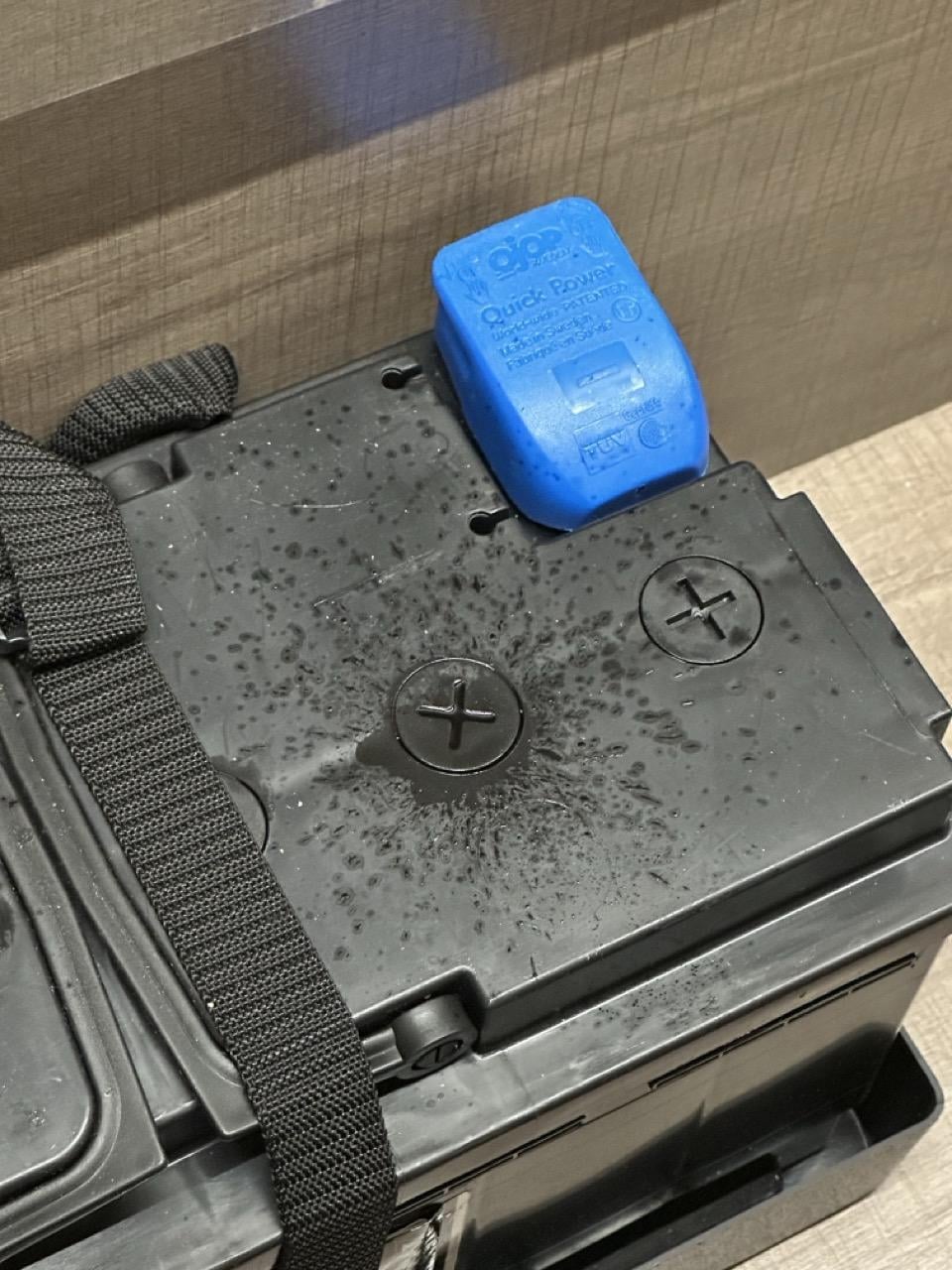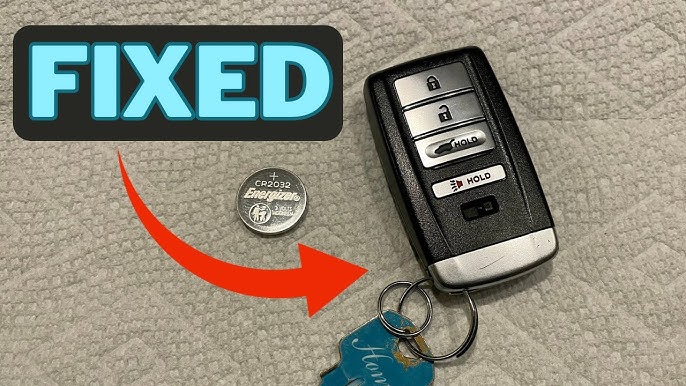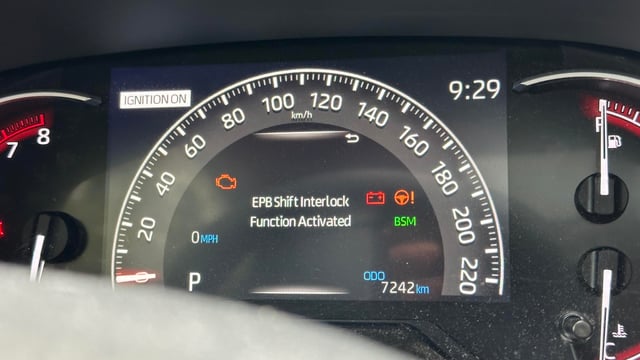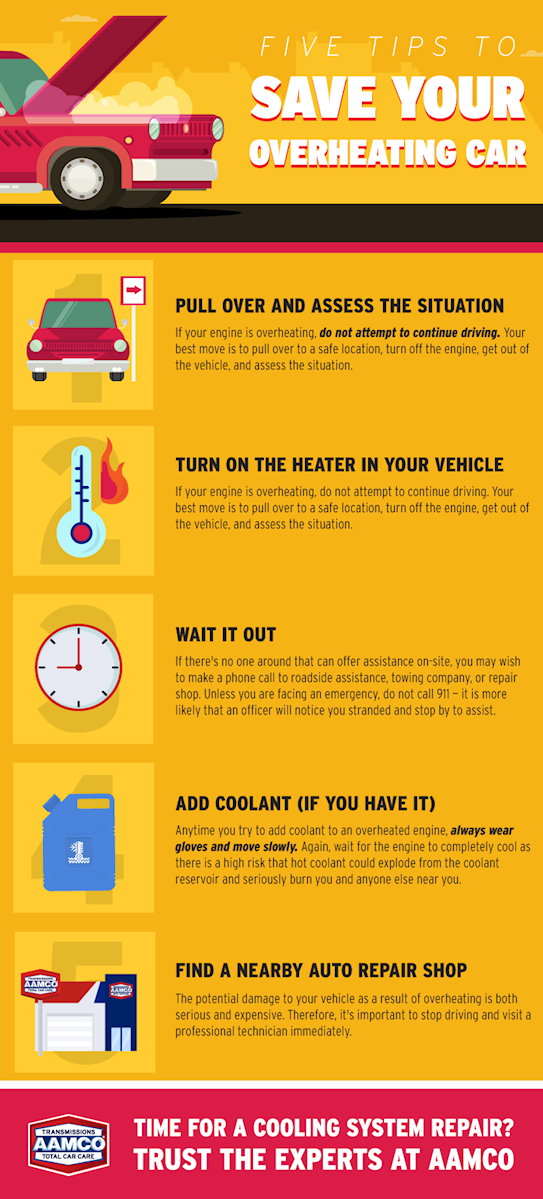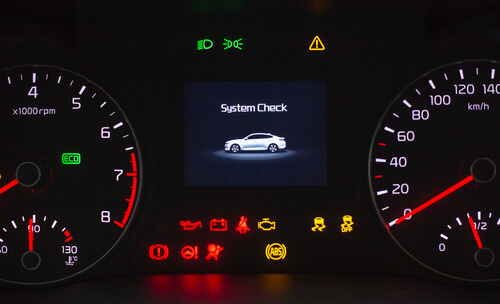Car Smells Like Rotten Eggs Battery: Solve the Mystery
Imagine stepping into your car, ready to start your day, only to be hit by an overpowering smell of rotten eggs. It’s unpleasant, unsettling, and leaves you questioning, “What on earth is going on?”
If you’ve experienced this, you’re not alone. This strange odor is often linked to your car battery, and while it might seem like a minor inconvenience, it could be a sign of something more serious. Understanding why your car smells like rotten eggs and what it has to do with your battery can save you time, money, and potentially prevent bigger issues down the road.
Let’s unravel this mystery and ensure your car is running smoothly and safely. Keep reading to find out what causes this smell, how it can affect your vehicle, and most importantly, what you can do to fix it.

Credit: www.autotechiq.com
Car Smells Like Rotten Eggs Battery
Rotten Egg Smell Causes
The smell of rotten eggs in your car can be alarming. It’s not just unpleasant; it’s also a sign of a potential issue. Understanding the causes can help you address the problem effectively. Let’s explore some of the common reasons behind this odor.
1. Leaking Battery Acid
A leaking battery is a usual suspect for the rotten egg smell. Batteries contain sulfuric acid, which can emit hydrogen sulfide gas. This gas smells like rotten eggs. Check your battery for leaks or damage.
2. Overcharged Car Battery
Overcharging can cause the battery to emit sulfur gases. This happens when the alternator isn’t working properly. It leads to excessive gas buildup, causing a foul smell.
3. Faulty Catalytic Converter
The catalytic converter helps reduce harmful emissions. If it malfunctions, it can produce hydrogen sulfide gas. This results in a rotten egg smell.
4. Old Transmission Fluid
Old or degraded transmission fluid can produce a sulfur smell. If the fluid is past its prime, it may need a change. Check the fluid regularly to avoid this issue.
5. Fuel System Issues
Fuel system problems can cause a rotten egg smell. If fuel doesn’t burn completely, sulfur compounds remain. These compounds can emit an unpleasant odor.
6. Exhaust System Leaks
Exhaust leaks can also lead to a sulfur smell. Damaged exhaust parts might release unburned fuel. This fuel can produce a rotten egg odor.
Understanding these causes helps in addressing the issue promptly. Ignoring the smell can lead to bigger problems. Regular maintenance can prevent these issues from occurring.

Credit: www.autotechiq.com
Battery Issues
A rotten egg smell in a car often indicates battery problems. This odor usually arises from leaking battery acid. Such a leak can damage components and pose safety risks. Regular battery checks help prevent serious issues.
When your car smells like rotten eggs, it might be more than just an unpleasant odor; it could be a sign of battery issues. The battery is essential for your car’s electrical system, and any problem can quickly escalate if not addressed. Let’s dive into some specific battery issues that might be causing that distinctive smell.
Overcharging Battery
An overcharging battery is a common culprit behind the rotten egg smell. When the car’s alternator charges the battery too aggressively, it can lead to the production of hydrogen sulfide gas. This gas is notorious for its foul odor, resembling rotten eggs. Have you ever noticed your battery getting excessively hot? It’s a sign of overcharging. If ignored, it can reduce the battery’s lifespan and lead to other electrical problems.
Sulfation
Sulfation occurs when sulfuric acid in the battery reacts with the lead plates. This reaction can produce that nasty egg smell and, over time, weaken the battery’s performance. Have you been using your car less frequently? Batteries in idle cars are more prone to sulfation. Ensuring your car is used regularly can help prevent this issue.
Battery Leakage
Battery leakage is another reason your car might smell bad. Leaking acid can emit a strong sulfur smell, signaling a potential hazard. It can corrode nearby components and result in costly repairs if not fixed promptly. Do you see a residue around your battery terminals? It’s a clear sign of leakage. Cleaning it up and checking for cracks in the battery can prevent further damage.
Old Battery
An old battery can also be the source of your troubles. As batteries age, they become less efficient and more prone to producing undesirable odors. How long has it been since you last replaced your battery? If it’s been several years, it might be time for a change. A fresh battery can enhance your car’s performance and eliminate that offensive smell. Addressing battery issues promptly can save you from future headaches. Regular inspections and maintenance are key to keeping your car’s battery in optimal condition. Are you regularly checking your battery’s condition? A simple visual inspection can reveal signs of wear and tear. Taking action early can prevent minor issues from becoming major problems. Your car’s battery is the heart of its electrical system. Keeping it in good shape can ensure your vehicle runs smoothly and smells fresh. Have you ever faced battery issues in your car? Share your experiences in the comments below!
Checking For Leaks
A car smelling like rotten eggs often signals battery leaks. This odor can indicate sulfuric acid escaping. Regularly inspecting your vehicle for leaks can prevent damage and costly repairs.
A car smelling like rotten eggs can be alarming. Often, this smell indicates a problem with the battery. One of the first steps in diagnosing this issue is checking for leaks. Leaks can cause serious damage if left unchecked. They might be the source of that pungent odor, and addressing them promptly can save you from more expensive repairs down the road.
Examining The Battery Surface
Start by examining the battery’s surface. Look for any visible signs of corrosion or liquid seeping. Are there any wet spots or unusual discolorations? These are telltale signs of a leak. If you notice something unusual, it might be time to take action.
Identifying Acid Leaks
Battery acid leaks are hazardous. They can corrode metal parts and damage the car. Use gloves and eye protection when inspecting the battery. If you see white or bluish powder around the terminals, this could be dried acid residue. A clean battery should have none of these signs.
Checking Connections
Loose or faulty connections can lead to leaks. Ensure the cables are tightly connected to the battery terminals. Wiggle the cables gently to check their stability. If they move easily, they might need tightening. This simple check can prevent leaks and ensure smooth operation.
Look Under The Hood
A quick glance under the hood can reveal much. Are there any strange puddles or stains around the battery area? Such signs might indicate a battery leak. It’s worth checking the battery tray too. It’s often overlooked, but it can collect leaked substances.
Listening For Hissing Sounds
Your ears can be as helpful as your eyes. Listen for any hissing sounds coming from the battery. This sound might indicate escaping gas or fluid. If you hear anything unusual, it’s best to investigate further. This proactive approach can help catch issues early.
Consulting A Professional
Sometimes, the problem isn’t immediately obvious. You’ve done the checks, but the smell persists. In these cases, consulting a professional can be a wise choice. They have the tools and expertise to diagnose the problem accurately. Would you rather spend a little now or risk more costly repairs later? Taking the time to check for leaks can save you stress and money. Regular inspections help maintain your car’s health and performance. Have you experienced a rotten egg smell from your battery? What steps did you take to resolve it? Share your story and insights.
Preventive Measures
A car smelling like rotten eggs may signal a battery issue. Check for leaks, and inspect the alternator. Regular maintenance helps prevent damage and ensures safety.
If you’ve ever stepped into your car and been greeted by a smell reminiscent of rotten eggs, you know how unsettling that can be. This unpleasant odor often points to issues with your car’s battery. Addressing these issues promptly is crucial, but even better is preventing them from occurring in the first place. Let’s explore some preventive measures to keep your car smelling fresh and your battery in top shape.
Regular Battery Maintenance
Regular maintenance is the key to preventing that rotten egg smell. Check your battery terminals for corrosion. Clean them with a mixture of baking soda and water to prevent buildup. Make it a habit to inspect your battery cables. Tighten any loose connections to ensure they are secure. This simple step can prevent battery leaks and subsequent smells.
Monitor Battery Health
Keep an eye on your battery’s health. Use a multimeter to measure the voltage. A healthy battery typically reads 12.6 volts or more. Consider investing in a battery tester. It provides a more comprehensive health report and alerts you to potential issues before they become problems.
Avoid Overcharging
Overcharging can cause the battery to release sulfuric acid, leading to that rotten egg odor. If you’re using a battery charger, set it according to the manufacturer’s instructions. Avoid prolonged idling with electronic devices running. This can strain your battery and lead to overcharging. How often do you leave your devices charging unnecessarily?
Regularly Replace The Battery
Batteries have a limited lifespan. Replace your battery every three to five years, depending on your driving conditions and habits. Keep a log of your battery’s age and performance. This helps you anticipate when a replacement is necessary, avoiding unexpected failures.
Choose The Right Battery
Selecting the right battery for your vehicle is crucial. Consult your car’s manual or a trusted mechanic to ensure compatibility. Consider the climate you drive in. Certain batteries perform better in extreme temperatures. Is your current battery suited for your environment?
Educate Yourself And Stay Informed
Stay informed about your car’s battery and its maintenance needs. Attend workshops or watch online tutorials to expand your knowledge. Engage with automotive communities. Exchange tips and experiences with fellow car owners. What preventive measures have worked best for them? Taking these preventive measures seriously can save you from the unpleasant surprise of a rotten egg smell. Not only will your car smell better, but these steps can also prolong the life of your battery, saving you money and hassle in the long run.
Professional Help
Car smells can indicate serious problems. The rotten egg smell from a battery is concerning. It may signal a battery issue or other troubles. Seeking professional help is crucial.
Experts know what to check. They find the source of the smell quickly. Professional mechanics have the right tools and experience. They handle battery issues safely and efficiently.
Why Professional Help Is Essential
Professional help prevents bigger problems. Ignoring a bad smell can lead to costly repairs. Mechanics diagnose and fix the issue before it worsens. Their expertise ensures your car runs smoothly.
Benefits Of Professional Diagnosis
Professionals identify the exact problem. They check for sulfur leaks or battery damage. Accurate diagnosis saves time and money. It ensures your car is safe to drive.
Choosing The Right Mechanic
Finding a reliable mechanic is important. Read reviews and ask for recommendations. Look for certified professionals with good reputations. Quality service guarantees peace of mind.
What To Expect During The Visit
The mechanic will inspect the battery. They check for leaks, corrosion, and other issues. Expect a thorough investigation of the smell. Repairs or replacements may be suggested.
Preventive Measures Post Repair
Mechanics offer advice to prevent future smells. Regular maintenance keeps your car in top shape. Follow their tips to avoid battery problems. Keep the car smelling fresh and clean.
Credit: www.reddit.com
Frequently Asked Questions
Can A Bad Battery Make Your Car Smell Like Rotten Eggs?
Yes, a bad battery can cause your car to smell like rotten eggs. This smell comes from sulfuric acid leaking, creating hydrogen sulfide gas. It’s a sign of a failing battery that needs immediate attention. Visit a mechanic to prevent further damage.
Is It Safe To Drive A Car That Smells Like Rotten Eggs?
Driving a car that smells like rotten eggs is not safe. This odor often indicates a failing catalytic converter or sulfur buildup. It could lead to toxic fumes entering the vehicle, posing health risks. Have your car inspected by a professional mechanic immediately to address potential issues.
What Do I Do If My Car Smells Like Rotten Eggs?
A rotten egg smell often signals a faulty catalytic converter. Check for leaks and inspect the exhaust system. If unresolved, consult a mechanic promptly to avoid further damage. Regular maintenance helps prevent such issues and ensures your car runs efficiently.
Conclusion
A rotten egg smell from your car signals a battery issue. Check it soon. Ignoring the smell can lead to bigger problems. Your safety and car’s health depend on it. Regular maintenance helps prevent such odors. Visit a mechanic if unsure.
They can diagnose and fix the problem. Trusting professionals keeps your vehicle in good shape. Remember, timely action saves money and stress. Keep your car in top condition. Avoid unpleasant surprises on the road. Taking care of your car ensures a safer, smoother ride.
Related Article

